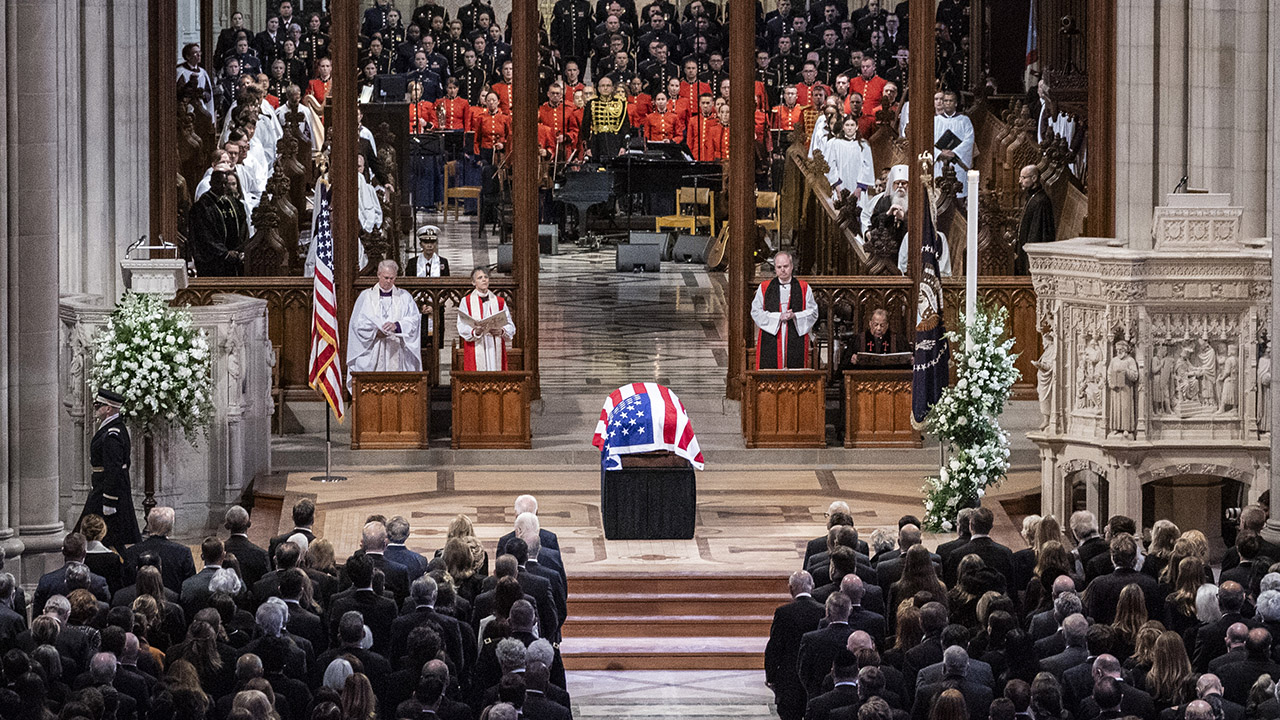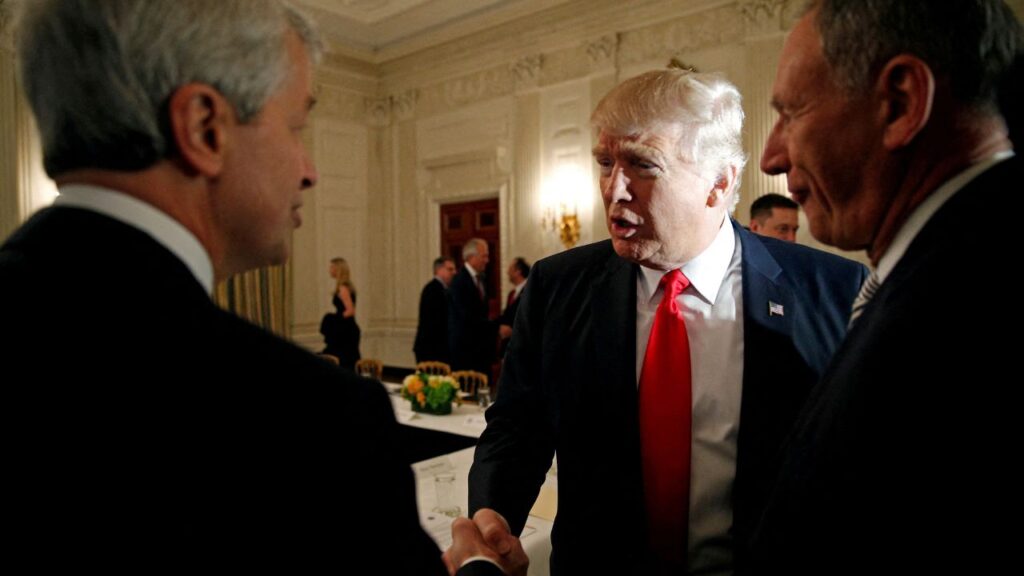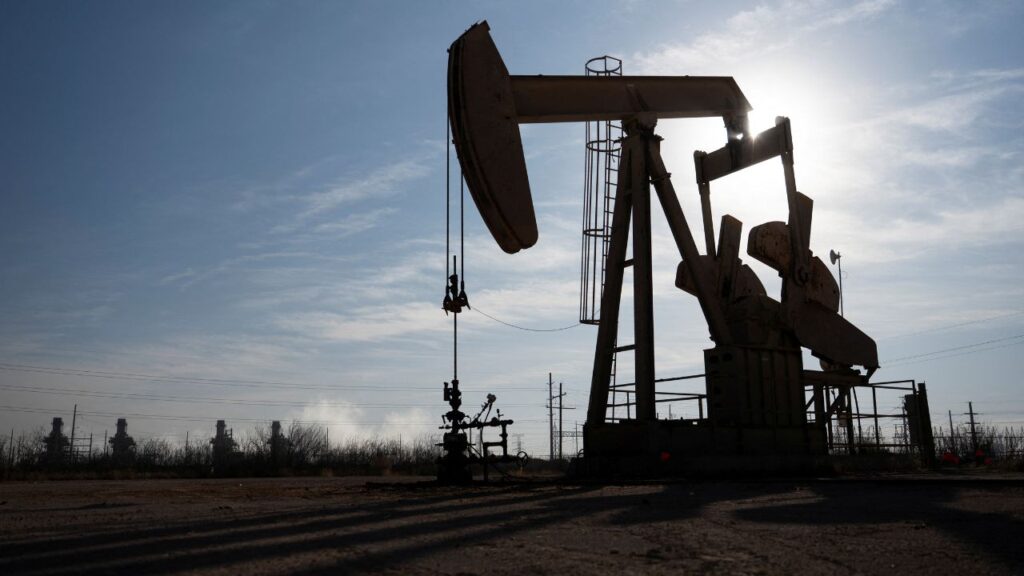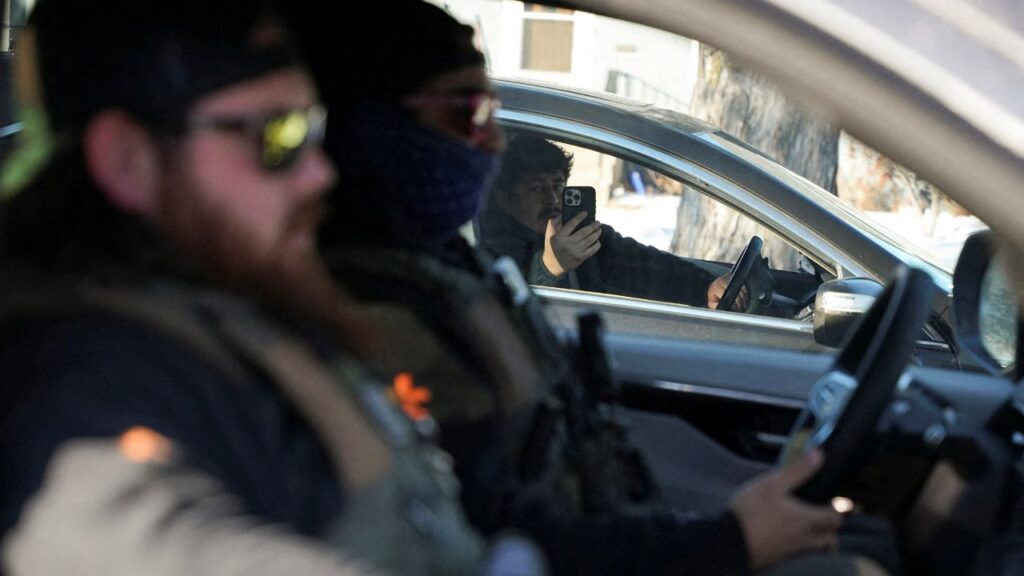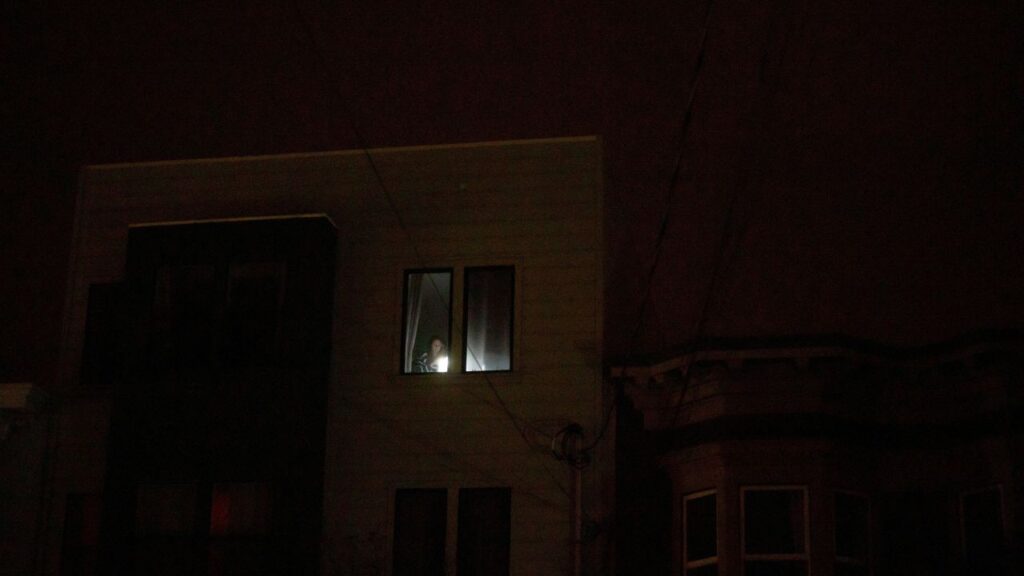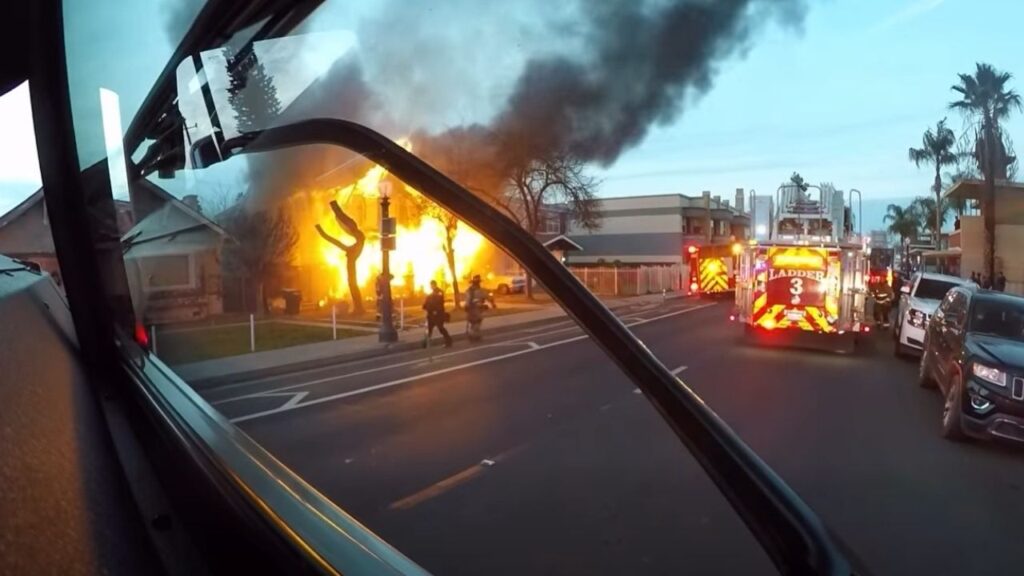Jimmy Carter, the 39th U.S. president, honored with a Washington funeral before burial in his Georgia hometown. (AP/Haiyun Jiang)

- Carter's funeral at Washington National Cathedral brought together living presidents in a rare moment of unity.
- Eulogies highlighted Carter's humanitarian work, Sunday school teaching, and efforts to reframe his presidency.
- The former president will be buried in his hometown of Plains, Georgia, next to his wife Rosalynn Carter.
Share
Jimmy Carter, who considered himself an outsider even as he sat in the Oval Office as the 39th U.S. president, was honored Thursday with the pageantry of a funeral at Washington National Cathedral before a second service and burial in his tiny Georgia hometown.
The first speaker was Joshua Carter, the former president’s grandson, who recalled how Carter regularly taught Sunday school after leaving the White House.
“He built houses for people who needed homes,” Joshua said. “He eliminated diseases in forgotten places. He waged peace anywhere in the world, wherever he saw a chance. He loved people.”
Joshua said Carter explained his dedication by saying that, as a Christian and a follower of Jesus Christ, “he worshipped the Prince of Peace.”
Jason Carter, another grandson, praised his grandfather and his wife Rosalynn, who died in 2023.
“They were small-town people who never forgot who they were and where they were from no matter what happened in their lives,” said Jason, who chairs the Carter Center, a global humanitarian operation founded by the former president shortly after leaving office.
Related Story: Jimmy Carter, the 39th US President, Has Died at 100
A Legacy of Service and Friendship
Carter died Dec. 29 at the age of 100, living so long that two of the eulogies were written by people who died before him — his vice president Walter Mondale and his White House predecessor Gerald Ford.
“By fate of a brief season, Jimmy Carter and I were rivals,” said the eulogy from Ford, which was read by his son Steven. “But for the many wonderful years that followed, friendship bonded us as no two presidents since John Adams and Thomas Jefferson.”
Carter defeated Ford in 1976 but the presidents and their wives became close friends, and Carter eulogized Ford at his own funeral.
President Joe Biden, who was the first sitting senator to endorse Carter’s 1976 campaign, will eulogize his fellow Democrat a little more than a week before he leaves office. All of Carter’s living successors attended the Washington funeral, including President-elect Donald Trump, who paid his respects in the Capitol Rotunda on Wednesday.
Related Story: From Georgia to Washington, Memorials Trace Jimmy Carter’s Life
A Rare Gathering of Presidents
The rare gathering of commanders in chief offered an unusual moment of comity for the nation in a factionalized, hyper-partisan era. They met privately before the service began. As Trump went to his seat, he shook hands with Mike Pence in a rare interaction with his former vice president. The two men had a falling out over Pence’s refusal to help Trump overturn his election defeat to Biden four years ago.
Trump was seated next to former President Barack Obama and the two could be seen chatting for several minutes. Vice President Kamala Harris, who lost to Trump in November, entered afterwards but did not interact with him.
Days of formal ceremonies and remembrances from political leaders, business titans and rank-and-file citizens have honored Carter for decency and using a prodigious work ethic to do more than obtain political power.
The proceedings began on Thursday morning as military service members carried Carter’s flag-draped casket down the east steps of the U.S. Capitol, where the former president had laid in state, to be transported to the cathedral. There was also a 21-gun salute.
At the cathedral, the Armed Forces Chorus sang the hymn “Be Still My Soul” before Carter’s casket was brought inside.
Remembering a Humanitarian Legacy
Mourners also will hear from 92-year-old Andrew Young, a former Atlanta mayor, congressman and U.N. ambassador during the Carter administration. Carter outlived much of his Cabinet and inner circle, but remained especially close to Young — a friendship that brought together a white Georgian and Black Georgian who grew up in the era of Jim Crow segregation.
Thursday will conclude six days of national rites that began in Plains, Georgia, where Carter was born in 1924, lived most of his life and died after 22 months in hospice care. Ceremonies continued in Atlanta and Washington, where Carter, a former Naval officer, engineer and peanut farmer, has lain in state since Tuesday.
Long lines of mourners waited several hours in frigid temperatures to file past his flag-draped casket in the rotunda, as tributes focused as much on Carter’s humanitarian work after leaving the White House as what he did as president from 1977 to 1981.
After the morning service in Washington, Carter’s remains, his four children and extended family will return to Georgia on a Boeing 747 that serves as Air Force One when the sitting president is aboard.
The outspoken Baptist, who campaigned as a born-again Christian, will then be remembered in an afternoon funeral at Maranatha Baptist Church, the small edifice where he taught Sunday school for decades after leaving the White House and where his casket will sit beneath a wooden cross he fashioned in his own woodshop.
Following a final ride through his hometown, past the old train depot that served as his 1976 presidential campaign headquarters, he will be buried on family land in a plot next to Rosalynn, to whom Carter was married for more than 77 years.
Reframing Carter’s Presidency
Carter, who won the presidency promising good government and honest talk for an electorate disillusioned by the Vietnam War and Watergate, signed significant legislation and negotiated a landmark peace agreement between Israel and Egypt. But Carter also presided over inflation, rising interest rates and international crises — most notably the Iran hostage situation with Americans held in Tehran for more than a year. Carter lost a landslide to Republican Ronald Reagan in 1980.
Former White House aide Stu Eizenstat used his eulogy to make an effort to reframe the Carter presidency as more successful than voters appreciated at the time.
He noted Carter deregulated U.S. transportation industries, streamlined energy research and created the Federal Emergency Management Agency. He emphasized that Carter’s administration secured the release of the American hostages in Iran, though they were not freed until after his 1980 defeat.
“He may not be a candidate for Mount Rushmore, but he belongs in the foothills,” Eizenstat said.
RELATED TOPICS:
Categories

Visalia Man Arrested After Alleged Hammer Assault on Roommate
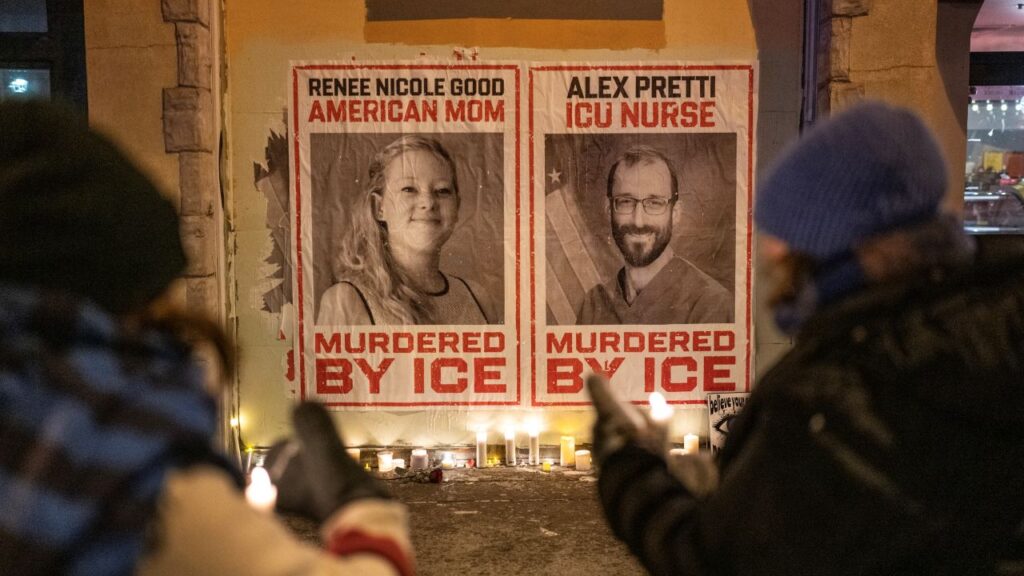
ICE’s Impunity Is a Formula for More Violence



